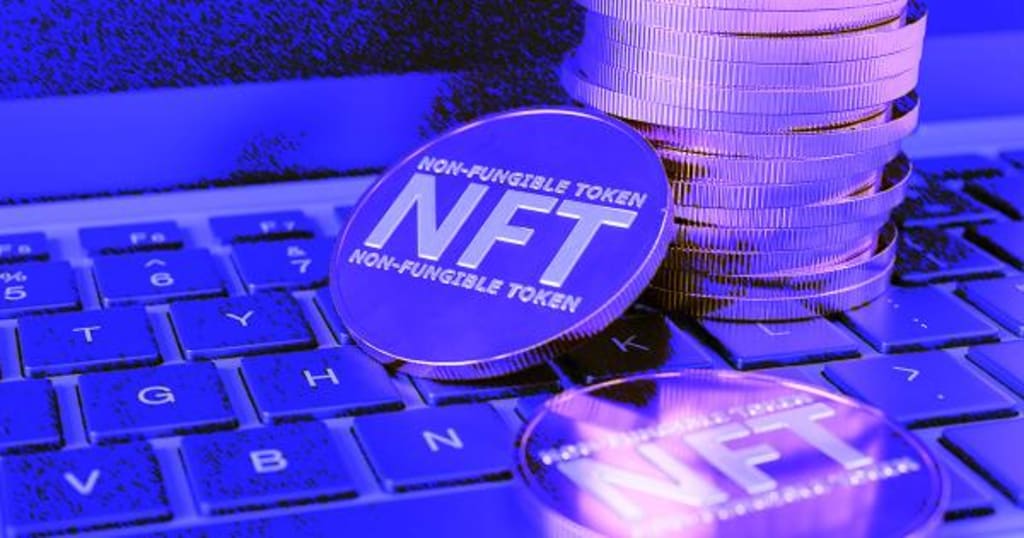"The Future of NFTs: What to Expect from NFT Platforms"
"The Evolution of NFT Platforms: Insights into the Future of NFTs"

NFTs or non-fungible tokens are unique digital assets that are stored on blockchain technology, which makes them immutable, traceable, and transparent. Unlike fungible tokens like cryptocurrencies, each NFT represents a one-of-a-kind item, such as a piece of art, music, video, or even virtual real estate.
Overview of the growth of NFTs
NFTs have exploded in popularity in recent years, with sales reaching an all-time high of $2.5 billion in the first half of 2021, up from just $13.7 million in the first half of 2020. This growth is due to several factors, including the pandemic-driven shift towards digital ownership and the growing interest in blockchain technology and decentralized finance.
Types of NFT platforms
There are several types of NFT platforms, including marketplace platforms, social media platforms, gaming platforms, and hybrid platforms that combine features of these categories. NFT marketplace platforms are the most popular type, and they allow creators and collectors to buy, sell, and trade NFTs using cryptocurrencies.
Popular NFT platforms
Some of the most popular NFT marketplace platforms include OpenSea, Rarible, SuperRare, Jump.trade,and Nifty Gateway.
The Future of NFT Platforms
Evolution of NFT platforms
The future of NFT platforms looks promising, with several developments expected in the coming years. These include the integration of NFTs with virtual and augmented reality, the adoption of more sustainable and eco-friendly blockchain technology, and the expansion of NFTs into other industries such as fashion, sports, and collectibles.
Integration with blockchain technology
NFTs will continue to be an integral part of the blockchain ecosystem, with more NFT platforms expected to adopt interoperable blockchain standards such as Ethereum and Polkadot. This will enable cross-chain transactions and improve scalability and security.
Expansion into other industries
NFTs are not limited to the art and music industries, as they can also be applied to other sectors such as gaming, sports, and fashion. For example, NFTs can be used to represent virtual assets in games or to verify the authenticity of luxury goods in the fashion industry.
Interoperability between NFT platforms
Interoperability between NFT platforms will be crucial for the future growth of this ecosystem. This will allow users to buy, sell, and trade NFTs across different platforms and blockchains, thereby increasing liquidity and market efficiency.
Advantages of NFT Platforms
Transparency and security
NFTs offer greater transparency and security compared to traditional ownership structures, as they are stored on a decentralized blockchain ledger that cannot be altered or tampered with. This ensures that the ownership and provenance of each NFT are transparent and verifiable.
Ability to create new revenue streams
NFTs offer creators and collectors a new way to monetize their work and assets, as they can earn royalties each time their work and assets, as they can earn royalties each time their NFTs are resold on secondary markets. This provides an ongoing revenue stream for creators and incentivizes them to continue producing valuable content.
Opportunity for creators and collectors
NFTs also provide creators and collectors with new opportunities for creative expression and social interaction. NFT marketplaces allow creators to showcase their work to a global audience, and collectors can use NFTs to express their individuality and support their favorite artists.
Challenges and Risks of NFT Platforms
Environmental concerns
One of the biggest challenges facing NFT platforms is their impact on the environment. The high energy consumption required for mining and transaction processing of cryptocurrencies and blockchain networks has led to concerns about carbon emissions and sustainability.
Legal and regulatory challenges
The legal and regulatory landscape for NFTs is still evolving, and there are uncertainties around issues such as intellectual property rights, taxation, and money laundering. This creates risks for investors and requires careful due diligence and legal advice.
Lack of standardization and interoperability
The lack of standardization and interoperability between NFT platforms and blockchain networks is another challenge. This creates fragmentation and inefficiencies in the market, limiting liquidity and making it difficult for users to navigate the ecosystem.
Conclusion
In conclusion, NFTs represent a new and exciting frontier in the world of digital ownership and creative expression. Despite their challenges and risks, NFT platforms are expected to continue evolving and expanding into new industries and use cases. NFT marketplaces play a critical role in this ecosystem by providing a platform for creators and collectors to buy, sell, and trade NFTs, and by promoting transparency, security, and interoperability.
About the Creator
tompeter1123
https://www.jump.trade/
Enjoyed the story? Support the Creator.
Subscribe for free to receive all their stories in your feed. You could also pledge your support or give them a one-off tip, letting them know you appreciate their work.





Comments
There are no comments for this story
Be the first to respond and start the conversation.